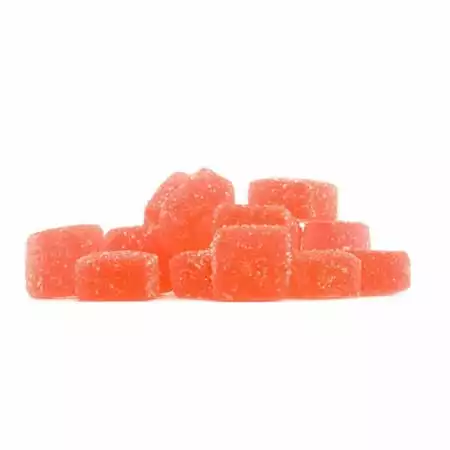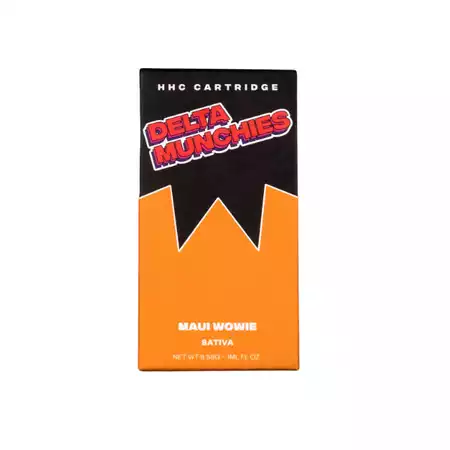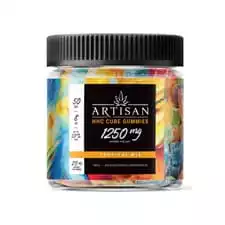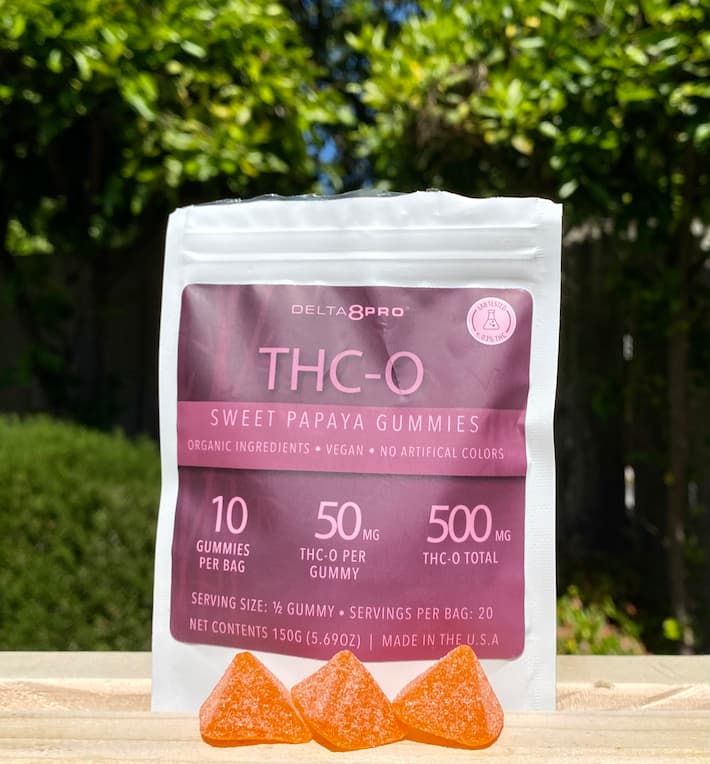HHC VS THC-O: Which Is Stronger?
I’ve stopped counting the compounds coming out of Hemp nowadays. I’d lose count soon enough.
Two of the most potent cannabinoids on the market today are HHC and THC-O (aka THC-O-Acetate).
The former elicits effects that mimic D9-THC but with availability similar to CBD, while THC-O is more psychedelic than any other cannabinoid talked about before it.
Keep reading for our take on the differences between HHC VS THC-O.
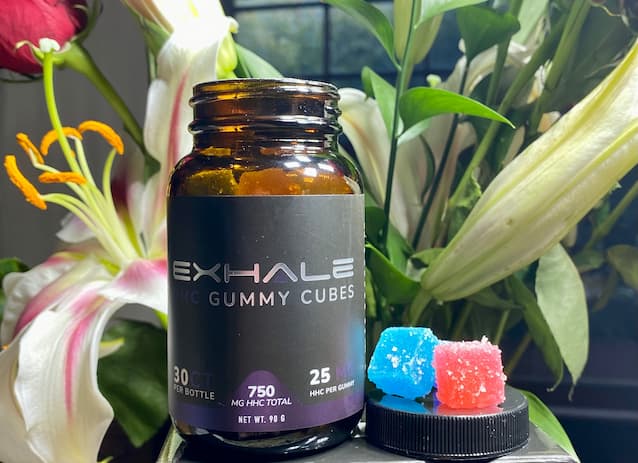
HHC Will Get You High
Yes HHC (Hexahydrocannabinol) is a semi-synthetic psychoactive cannabinoid that will get you high.
It’s produced when THC is saturated with hydrogen creating a chemical reaction between the active compound and hydrogen. Hydrogenation modifies THC by replacing the double bond with two hydrogen atoms.
This reaction changes its physical properties, such as the molecular weight and geometry, leading to a much more stable compound that is more resistant to heat.
It also gives the HHC an extended shelf life due to the fact it is less susceptible to oxidation and breakdown when compared with THC.
HHC can also be created from hemp-derived CBD, and when you purchase HHC products, you are typically getting HHC made from hemp-derived CBD.
In my experience, HHC produces similar effects as Delta 9 THC but it is slightly less potent depending on the brand it’s bought from.
Largely due to the inconsistencies in product quality – always look for third-party lab testing!
All in all, the effects of HHC are between Delta 8 THC’s relaxed feeling and Delta 9 THC’s more psychoactive effects.
Some users claim that HHC makes them also feel relaxed but with mental cloudiness and has pain-relieving capabilities. I’d tend to agree, but this has yet to be proven outside of animal testing.
Related Reads: HHC Vape Carts, HHC Gummies
- Artisan HHC Edibles
- 25MG HHC Per Edible
- 2 Flavors Available
THC-O Is Psychedelic
THC-O, otherwise known as THC-O Acetate, Acetate THC X, ATHC, and THC Acetate, is estimated to be more than 300% more potent than Delta 9 THC.
It is often called the psychedelic cannabinoid due to its anecdotally “trippy” effects. This, and the extremely high potency, is causing THC-O products to fly off the shelves at alarming rates.
Most users claim that it is somewhat psychedelic and is highly psychoactive. And many of these users describe borderline hallucinogenic effects.
So, if you are using THC-O for the first time, it is best to increase your dosage very slowly.
Take one inhale of a vape or THC-O-infused flower and wait up to an hour for the THC-O to hit as it takes much longer to be felt.
Because if you don’t, and you overdo it, you will be stuck feeling uncomfortable for an extended period of time.
The same is true when it comes to THC-O edibles like gummies or oils and tinctures. Start low and go slow, the same as you would do for Delta 9 THC edibles.
- Full panel COAs available
- Potent effects
- Excellent flavor
HHC VS THC-O
HHC and THC-O are synthetic Cannabinoids
THC-O is not a naturally occurring cannabinoid and is a semi-synthetic cannabinoid like HHC
It does not fall under the category of phytocannabinoids like Delta 8 THC, Delta 9 THC, THC-P, and CBD.
This is because THC-O is not a naturally occurring cannabinoid from the cannabis or hemp plant and is manufactured in a lab.
THC-O must go through a complex chemical transformation process to occur. It takes specific chemicals to acetylate THC, turning it into THC-O. It is usually produced by using two chemicals – acetic anhydride and sulfuric acid.
It takes a specially trained chemist to create THC-O and should not be attempted by amateurs with in-home makeshift laboratories. It is highly reactive and dangerous if improperly manufactured.
Nonetheless, HHC is not a phytocannabinoid either, as it too is created in a lab.
Older methods of creating HHC involved using THC and subjecting it to acids like synthetic gastric juice. In contrast, the newer methods use catalysts like palladium to hydrogenate THC into HHC.
However, since most companies selling HHC are trying to remain within the Hemp derived market, they convert CBD to HHC using artificial, industrial-strength gastric juice.
Or, they create it from the terpenes citronellol or L-carvone using catalysts, pressure, hydrogen atoms, and extreme temperatures.
Yup. It’s not simple!
Due to the chemical processes used to make THC-O and HHC, ensure that you always check the company’s third-party test results and check that they test for residual solvents.
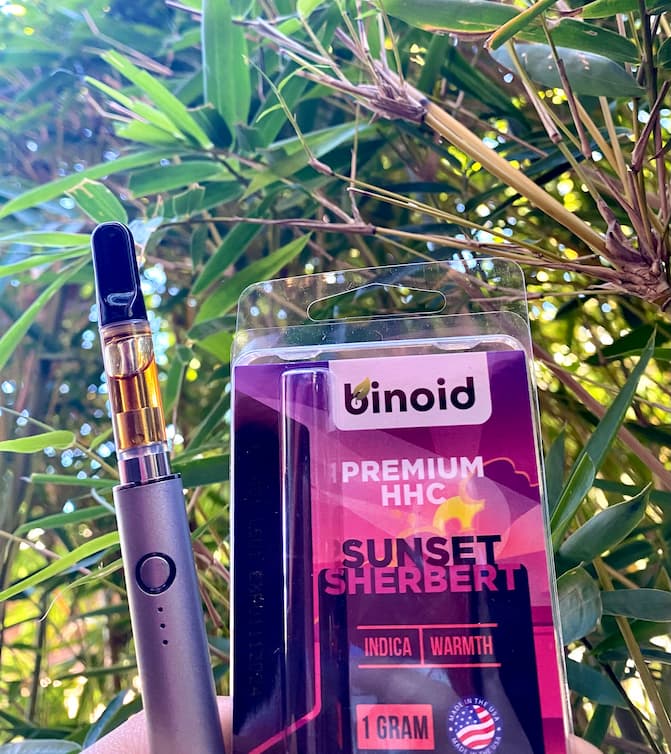
HHC Is Not A THC Isomer
Regardless of how it is made, HHC isn’t a form of THC.
Structurally, HHC and THC are very similar, but THC has a double bond which is not in an HHC molecule.
This change in structure is due to the hydrogenation process (which is similar to the process of turning vegetable oil into margarine.)
THC on its own is very susceptible to oxidation and degradation, and when it oxidizes, it loses hydrogen atoms, and two new double bonds form, resulting in CBN (cannabinol).
The formation of CBN is what results due to the degradation of THC and has only 10% of THC’s potency. You don’t want this occurring to your THC.
By adding hydrogen atoms to the chemical structure of THC, it stabilizes the HHC molecule, which prevents HHC from degrading into CBN, Delta 8 THC, or Delta 10 THC, which will form in trace amounts as it does for THC.
The HHC cannabinoid’s effects and potency remain unchanged despite going through hydrogenation.
Therefore, THC and HHC have similar effects, even though HHC is considered 80% as potent as THC. HHC is a hydrogenated derivative.
HHC does not lose its potency like THC when it is exposed to air. Not to mention, HHC is also resistant to heat and UV light, unlike the more volatile THC.
Another similarity between the two compounds is that HHC also has similar adverse side effects as THC, such as anxiety, insomnia, rapid heart rate, dizziness, increased appetite, dry mouth, red eyes, and paranoia.
The complete health effects and long term safety of THC, HHC, THC-O, or products containing these are still unknown.
The similarity in positive effects also includes the fact that HHC causes feelings of euphoria, increased body temperature, and altered auditory and visual perceptions like THC.
But users of HHC say it is more relaxing, like Delta 8 THC, and is not as stimulating as Delta 9 THC.
HHC may provide users with similar therapeutic benefits, but the research on HHC’s full potential is still limited until further research is completed.
- Third party tested (CoA on site)
- $0.10 per MG HHC
- 7 flavors available
THC-O Is Considered Stronger
Out of HHC, THC, and THC-O, THC-O is considered much stronger than the other compounds.
We’ve found that THC-O carts are significantly more potent in our product tests. But, where a governing body does not regulate it, your experience can vary.
Keep in mind that THC-O is considered triple the strength of your standard Delta 9 THC.
Therefore, you should only consume one-third of what you would typically smoke or vape. When you first start out using THC-O, start with a dosage of 0.5 mg. Then make sure you wait for a minimum of thirty minutes before taking another dose.
If you are using THC-O oil or edibles, beginning with 3 mg is usually all you need. I know this may seem like a low dose, but it is sufficient for the majority of people.
If you take more than 10 mg in oil or edible format, you will likely experience unpleasant psychedelic effects, not unlike magic mushrooms or mescaline. However, it won’t be quite as intense.
Many people describe that taking THC-O is “spiritual-like,” and you may have mild visual effects, especially if you close your eyes. Be prepared for this, as not every person can handle this sort of experience.
THCO Takes Ages To Hit
THC-O takes at least thirty minutes to peak hit when inhaled. Often it takes even longer.
This is due to the fact it has to be metabolized regardless of the consumption method. And, when vaped or dabbed, THC-O distillate should hit you in one to three minutes but can continue to increase in strength for up to an hour.
It is deemed a “prodrug” because it still requires initial processing but it is not pre-activated by heat (decarboxylation) like the majority of THC products and by-products are, like Delta 8 THC or Delta 10 THC.
THC-O needs to be fully processed through the body, breaking down in the stomach, intestines, and liver before entering the bloodstream and making its way to your central nervous system and your brain. This is very similar to how THC edibles are metabolized.
Due to this, it is essential that you wait before consuming more edibles, oils, tinctures, or smoking and vaping.
If you don’t, you may become much more intoxicated than you intend, and the psychedelic experience you are aiming for is more likely to be harder on you.
THC-O is definitely not for everyone, so use it with caution.
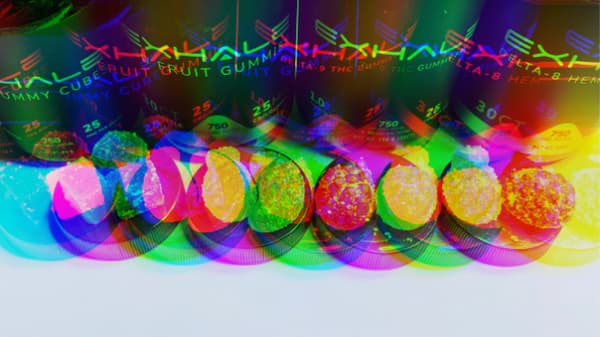
HHC Might Not Show Up On Drug Testing
Though this theory is anecdotal at the moment, it appears that HHC, as it is not an isomer of THC, would permit you to pass a THC drug screening.
But you would have to ensure that it is pure without any trace of THC.
This would include any close contact with THC through the storing and shipping process from a manufacturer, which most likely does not take into account cross-contamination.
The hemp industry is not regulated, and vendors can use whatever means to get you to purchase their products.
That includes making products that have trace levels of THC. So consume them at your own risk.
What drug tests look for is the broken down metabolite THC-COOH. This is the molecule that any form of THC breaks down into when ingested. Even if you have consumed 0.3% THC, it is possible that it would show up on the test.
The best possible route to ensure you get pure HHC is buying HHC isolate, as this is the purest form of the cannabinoid and has no other cannabinoids in it.
THC-O is a THC variant that you shouldn’t consume before a drug screening, as this, too, breaks down into the THC-COOH metabolite.
Honestly, it is best if you avoid all THC variants and derivatives if you have a drug test coming up for at least three months since traces of THC can be in your system for that amount of time or even longer.
Related Reads: HHC Drug Testing, HHC VS THC, THC-P VS HHC
Which Is For You?
If you are looking for alternate THC products to provide you with a buzz, then you will probably find HHC interesting.
With fewer cerebral effects, HHC still provides you with a relaxing high that many users find more pleasurable, especially for daytime use when you need to be more alert.
However, if you are looking for a mild psychedelic experience, then THC-O may be right up your alley.
With its mild visual effects and prolonged high, many people are falling in love with this variant that is supposedly 300% stronger than typical Delta 9 THC.
Wrapping Up THCO VS HHC
Keep in mind that THC-O will make you test positive on a drug screen, whether it is an oral test, urinalysis, blood, or hair test.
Though, according to hearsay, HHC may be an option if you still want to consume some form of THC.
But, this is only a theory at this point and will need clinical research to determine if this is true. HHC metabolites could still potentially cross-react with drug testing assays.
All the effects of both THC-O and HHC are still anecdotal as little research has been completed on these variants, so enjoy them responsibly and at your own risk.

